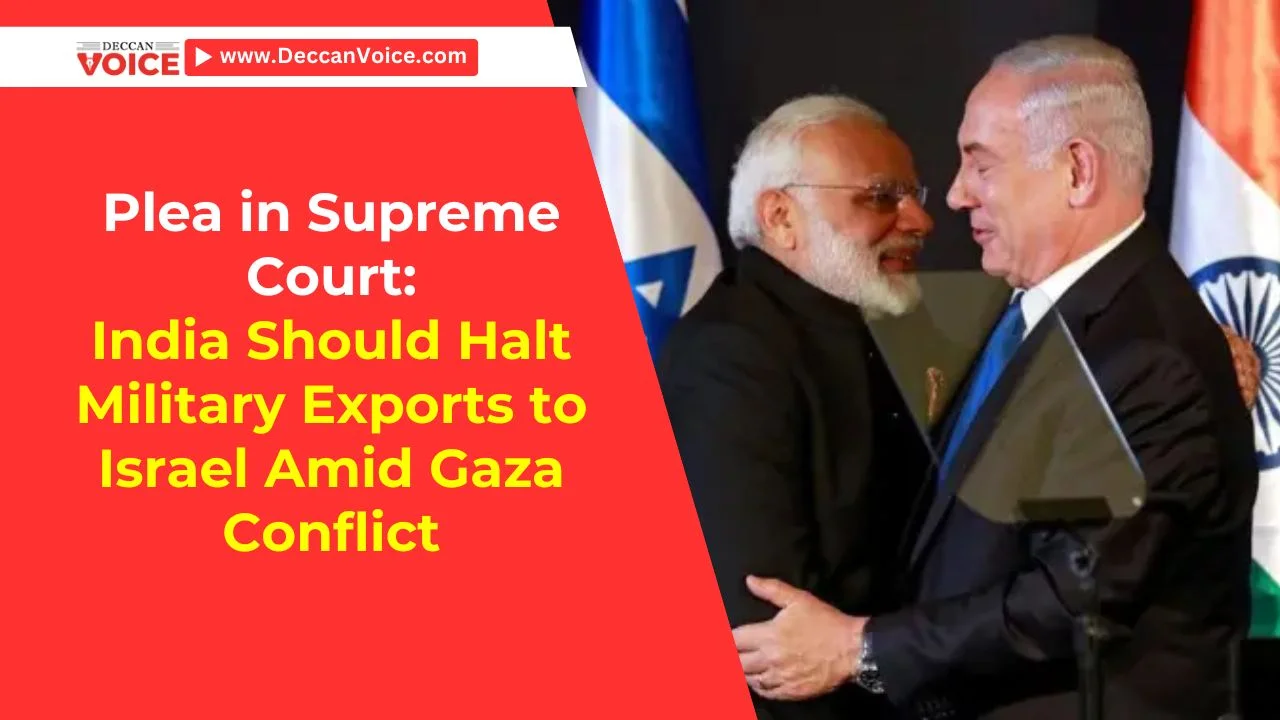India advised to forestall army exports to Israel: petition to Supreme Court
India Urged to Stop Military Exports to Israel: Petition Filed in Supreme Court
In a significant development, a petition has been filed in the Supreme Court of India, urging the government to halt all military exports to Israel. The petition, brought forward by human rights activists and legal professionals, argues that India’s military ties and arms exports to Israel directly fuel the ongoing conflict in the occupied Palestinian territories. The petitioners claim that the weapons and defense equipment supplied by India to Israel are being used in military operations that allegedly violate international human rights laws and UN resolutions, particularly concerning the treatment of Palestinians.
India-Israel Defense Ties
India and Israel have cultivated strong defense ties over the past few decades, with Israel emerging as one of India’s largest arms suppliers. The relationship between the two countries spans a wide range of military cooperation, including the sale of drones, missiles, and advanced defense technologies. For India, Israel’s cutting-edge defense technologies have been pivotal in enhancing its military capabilities, especially in areas like surveillance and counter-terrorism. Conversely, India’s growing arms industry has positioned it as a key defense exporter to Israel.
Allegations of Human Rights Violations
The petition contends that these military exports violate both international humanitarian law and India’s own legal commitments. The petitioners cite the Fourth Geneva Convention, which prohibits an occupying power from using excessive force against civilians, and accuse Israel of committing violations during its operations in Gaza and the West Bank. According to the petition, India’s continued defense cooperation with Israel indirectly supports these actions by providing the military hardware used in these operations.
The petition also points to India’s long-standing support for Palestinian rights at international forums, including the United Nations. Historically, India has advocated for a peaceful resolution to the Israel-Palestine conflict, rooted in its non-aligned and pro-Palestine foreign policy stance. However, critics argue that the deepening military relationship with Israel stands in stark contradiction to this position.
Legal and Ethical Dimensions
From a legal perspective, the petition challenges the constitutionality of India’s military exports under Article 51 of the Indian Constitution, which directs the state to promote international peace and security. The petitioners argue that by supplying arms to Israel, India is violating its constitutional obligations to uphold peace and justice globally. They further contend that India’s involvement in supplying arms to a nation accused of human rights abuses puts its ethical standing in jeopardy.
A Divisive Issue
The petition has sparked a contentious debate within India, as it touches upon sensitive issues of national security, foreign policy, and human rights. Supporters of the petition argue that India, as a democratic nation with a strong human rights record, should distance itself from conflicts where allegations of war crimes and human rights abuses are prevalent. On the other hand, opponents argue that defense cooperation with Israel is vital for India’s strategic interests and military modernization, particularly given the regional security challenges India faces.
Conclusion
As the Supreme Court deliberates on the petition, it faces the difficult task of balancing India’s strategic defense needs with its legal and ethical commitments to international peace and human rights. The case not only highlights the complexity of India’s foreign relations but also raises broader questions about the role of military exports in global conflicts. Whether the court will side with the petitioners or uphold the government’s defense ties with Israel remains to be seen, but the case has undoubtedly ignited a crucial discussion about the intersection of defense, diplomacy, and human rights.

